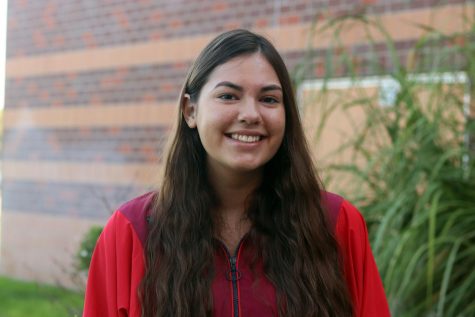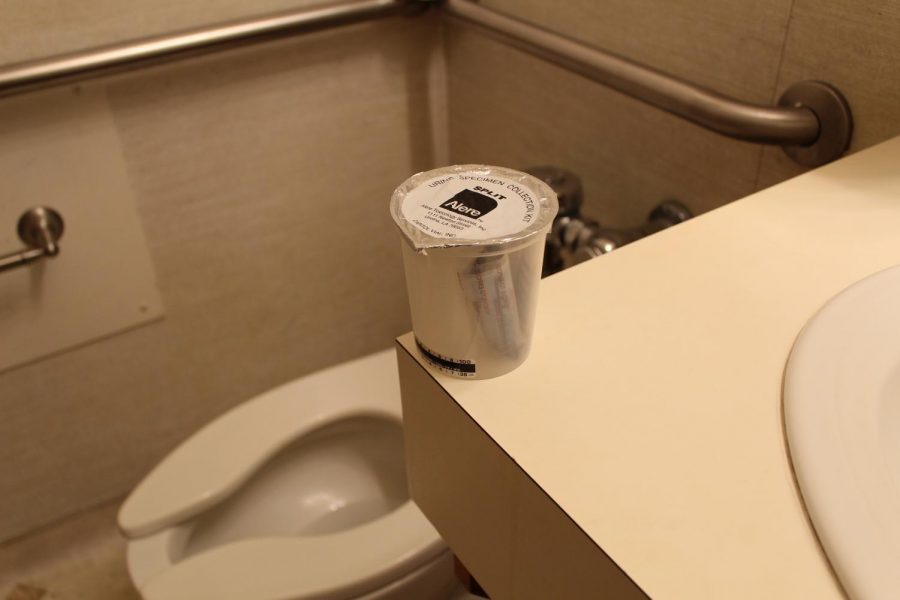Testing the school
Drug testing at NPHS is not effective
Standard urine drug test, similar to the ones the hospital brings to NPHS to test students. The tests are sent away to an independent laboratory for results.
My heart raced as assistant principal John Byrn pulled me out of my business law class and down to the makeshift drug testing lab in a teacher workroom. It felt like I was about to be in some serious trouble, and I started panicking. In front of the bathroom door, he told me that I had been randomly selected for the activity office’s drug testing. I was handed a cup and told to pee in it, and I couldn’t flush the toilet or run the sink water to wash my hands (as gross as it sounds). After I handed over my business –theirs now– they taped up my urine sample, and I was free to go. This whole process seemed very secretive. My parents never got notified that I had been tested, and I never got my results back, which was very stressful.
At the time I was tested, I was on diversion for an MIP. This made me think that the tests weren’t random at all. I talked to an athlete who was also tested ( also happened to have an MIP), and they told me they believed that they was also targeted. “If I hadn’t have gotten my MIP, there is no way I would have been tested,” the athlete said. Everyone else I talked to thought the same thing.
Activities Director Marc Mroczek explained how people are chosen. “Student numbers are sent to a third party, and they randomly select 10 numbers to send back,” he said. So, it turns out the tests really are random. Basically, the school picks when students will be tested and the hospital randomly picks who.
Less drug tests are being administered than originally projected. The school tests 10 people each time once a month. Some of the things students are tested for include: marijuana, nicotine, and alcohol. “It’s basically about everything,” Mroczek said.
I believe that with so few tests being administered, there is not a lot being done by the drug tests. If the point of the tests was to deter students from drug usage and reduce drug usage of people involved in activities, it is not doing that. I talked to a student who tested positive, they said that even after being tested, they are really not worried, and will continue to use drugs. If a test comes back positive, there are no academic consequences, or no suspensions from school, just from activities. The athlete I talked to said that they can still go to practices, but can’t compete in events. The only people who are told about the results of the drug tests are the student and their parents (the school decided to start notifying parents after the second time testing). “As far as the school drug testing, I and law enforcement have nothing to do with it,” School Resource Officer Jeremiah Johnson said.
The school is hoping that these tests will be a deterrent for students, but myself and fellow students don’t feel like this is the case. “I think [drug testing] is just stopping students from doing sports, not drugs,” junior Sam Malsbury said. Students in activities aren’t really phased by these tests. “Most drugs are easy to get out of people’s systems, so they will just do them anyway,” sophomore Maylah Langemeier said.
In the end, I believe the drug tests simply don’t have much of an impact. Some students, like senior Josh Monie, think that students’ personal lives do not really have to do with school. “School life and what people do in their free time are two totally opposite things,” Monie said.
By the time teenagers are in high school, they have already decided what they think may be right or wrong for the most part. I understand the school wants to reduce drug use among students, but there are probably better ways of doing this than spending $40 a test on something that is having little effect on students.

My name is Sierra Winder, I am a junior this year and did journalism for one quarter last year. Writing is so enjoyable to me so this is the...

